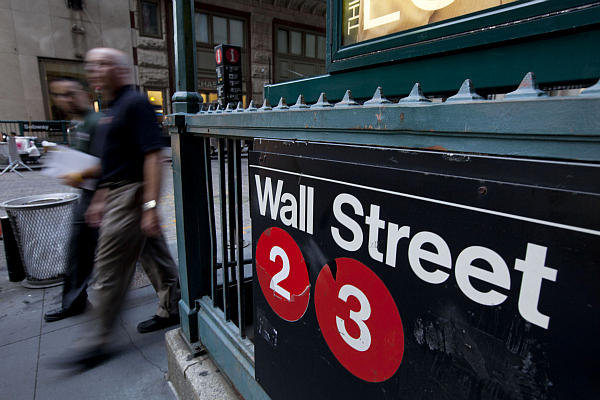ACCOUNTANTS rgfa BUSINESS ADVISORS
rgfa ACCOUNTANTS
207 Sandy Beach Rd.
Plymouth, MA 02360
United States
ph: 508-295-1758
info
How the stock market works (for beginners)
We get so many questions every year about the stock market and how it actually works. The  perception, and the reality, of how it works are like most things. Very different. This article will give you a few pointers on how to look at companies and the stock market as whole. I'm a big beleiver of learning how things work before using them, so I'm learning all the time. I suggest you do the same, do some homework and get aquainted with the stock market. Understanding how it works will payoff in the end.
perception, and the reality, of how it works are like most things. Very different. This article will give you a few pointers on how to look at companies and the stock market as whole. I'm a big beleiver of learning how things work before using them, so I'm learning all the time. I suggest you do the same, do some homework and get aquainted with the stock market. Understanding how it works will payoff in the end.
 First off, buying a share of stock is like owning a part of the company. So when you buy a share of stock it is valued at a certain dollar amount per share, let’s say $5 per share. Now based on the performance of the company, the stock should go up, or down in dollar value per share. So here’s how you would think it works.
First off, buying a share of stock is like owning a part of the company. So when you buy a share of stock it is valued at a certain dollar amount per share, let’s say $5 per share. Now based on the performance of the company, the stock should go up, or down in dollar value per share. So here’s how you would think it works.
How to Calculate Stock Gains and Losses
So you have bought 10 shares of ABC Company at $5 per share. Your cost (or your cost basis) would be $50 (10 share x $5 per share). Let’s say for whatever reason, the stock price of the company goes to $6 per share, and you decide to sell all of your stock, here’s the result.
Sell 10 shares @ $6 per share = $60
Cost 10 shares @ $5 per share = 50
Profit from sale = $10
On the other side of that, you don’t always win. You can lose money as well. Remember one thing. You only gain or lose money when you actually sell the stock. If you haven’t sold it, you haven’t gained, or lost anything. So let’s say if you sold your stock at $4 per share, here’s the result.
Sell 10 shares @ $4 per share = $40
Cost 10 shares @ $5 per share = 50
(Loss) from sale = $(10)
How Stocks are Valued (The Lemonade Stand)
You win some you lose some. Now comes the interesting part. How stocks are valued. This is really fun. So let’s take the lemonade stand. Let’s say you buy stock in the lemonade stand, so you think the better the lemonade stand does profit or loss wise the value of the stock will increase or decrease. Not necessarily. Watch closely. Let’s say the lemonade Stand has the following results.
Sales (lemonade sold) $100
Costs (cost to make it) 75
Profit $ 25
So the company is doing well right. Yes it is, they are making money, which is good. So wouldn’t you want to invest in it. Who makes up the rules and determines if the company is doing well or not? Most of the time it’s not the company. Although common sense tells you that if a company is making money they are doing well. Not necessarily according to the stock market
Analysts and Wall Street I love business analysts. They predict the future of what a company should do or what they expect it to do. Somewhat like a Meteorologist who tells us what the weather will be. It’s the future. I hate to rain on anyone’s parade, but no one knows the future, except for some scientists in the movies. So here’s how it works. Let’s take the example above and attach some dates to it.
These are the results for the first three months of the year, or the first quarter. Quarters are equal to three month periods during the year i.e. January 1 through March 29 is the first quarter or referred to as Q1, and the second quarter would be the three month period April 1, through June 30, or Q2 etc., etc. So the following numbers are for Q1 January through March.
Q1
Sales (lemonade sold) $100
Costs (cost to make it) 75
Profit $ 25
This is great, the company has done well. Now the analysts from Wall Street have to give their opinion. The analyst state that they think the lemonade stand should increase their sales in Q2 to $125. So the numbers for Q2 come in, they are as follows: and we will now compare the quarters from here on in.
Q2
Sales (lemonade sold) $127
Costs (cost to make it) 87
Profit $ 40
Wow!! The lemonade stand didn’t only make more than the Wall Street analysts said but they exceeded their sales expectations by $2, and they increased the profit from $25 to $30. What does this mean? Well in most cases this means that the price of the stock should increase. But that isn’t always the case. We will look at things that influence the stock market later on. But for now let’s focus on Wall Street and the analysts. For the next quarter, the analysts on Wall Street predict that the lemonade stand will increase their sales to $150 and the profit will be $35.
Q3
Sales (lemonade sold) $152
Costs (cost to make it) 110
Profit $ 42
So the lemonade stand is doing great and it’s beating what the analysts predict. Does the price of the stock go up? Well the company did well, it beat what the analysts expected, so in most cases, yes it will increase. I will now give you an example of how a company still does well but does not meet analysts’ expectations. So example Q4. Analysts predict $225 in sales aqnd a profit of $100. The actual numbers come in.
Q4
Sales (lemonade sold) $220
Costs (cost to make it) 130
Profit $ 90
Oops. The lemonade stand missed what the analysts predicted. They were short on sales and they were short on their profit. Now you would think that they were doing well, which they are. Sales are increasing, profit is increasing, and so what’s the problem. The problem is that it did not meet or exceed what the analyst expectations. Very interesting, but that is how it works.
Take for example McDonalds. There recent Q3 numbers for 2012 were $7.15 billion in sales, and $1.46 billion in profit. Number one, they were profitable, and that’s good, in this case to the tune of $1.46 billion, that’s a lot in my book. But what happen to the stock. It went down on or around 6% so far since it reported. Why? It didn’t meet what the Wall Street analyst expected. This is information that you need to know when investing, but there is more.
Things that impact the market
We now understand that companies are not viewed by what they actually do. It has everything to do with what other people (the so called experts) think it should do. So is there a control mechanism attached to the stock market. I’ll leave that up to you to figure out. The following are number of variables are what can affect the stock market as a whole regardless of how the companies are doing. Even if they profit, and they meet expectations, these things can put a stop to the market, and vice versa.
Jobless Claims and Unemployment
Jobless claims usually always have an impact on the stock market. If unemployment rises from one month to another it has a negative impact on the market and if unemployment decreases it has a favorable impact. But it’s tricky. Is unemployment actually people without jobs? You would think so, but it’s not. Unemployment is considered to be the people who collect unemployment compensation due to the loss of a job. So let’s say a particular person receives unemployment benefits for two years. At the end of the two year period, they exhaust all of their benefits, and they are no longer able to collect these benefits. After their benefit period is over, they still do not have a job, they are still unemployed. Well, that person, unemployed, will not show up as a statistic as being unemployed although they still are unemployed. The so called unemployment number only includes people who collect benefits. So the number can sometimes be misleading depending on how it is presented.
The Interest Rate
When the interest rate is high, stocks will die. When the interest rate is low, stocks will grow. That’s the saying at least. Just my opinion, I don’t think it has a much of an impact as it has in prior years. When the government wanted to kick start the stock market in the past, they would decrease the interest rate. The problem with today and the past few years is the interest rate is very low which leaves less room for the interest rate to decrease, and if it did decrease, I don’t think it would have an impact on the stock market.
Oil and Energy
Usually price per barrel. Remember what gas has an effect on. Pretty much everything. Gas goes up, it cost more to deliver products to stores which increase the price of products, same with food for supermarkets and restaurants. It costs to heat our house, basic delivery, mail and the list goes on. If the price goes up or down, it has an effect on the market.
War and Terrorism
Look what happened when they killed Osama Bin Laden. The stock market jumped to a three year high. His death really has nothing to do with business but this is how markets are impacted by the media and news. On a darker note, after the 911 attacks on the first day of trading, the market fell 684 points, a 7.1% decline, setting a record for the biggest loss in exchange history for one trading day. At the close of trading that Friday, ending a week that saw the biggest losses in NYSE history, the Dow Jones was down almost 1,370 points, representing a loss of over 14%, An estimated $1.4 trillion in value was lost in those five days of trading.
Just My Opinion
I’m not a stock expert, nor do I claim to be one. I have done well under my standards, but I’m not trying to become a billionaire by investing in the stock market. What I can tell you, and I will suggest is that you can do well over time. Time is your leverage. If you want to make millions of dollars over night they have a place for that called Las Vegas, and you know how many people win there. So for all of you who are new to this, my advice is to read a lot, listen to everything, watch some tv shows (Jim Cramers Mad Money on CNBC, is a good place to learn) and understand what motivates the stock market, don’t be greedy and look at this over time, and you will do fine.
Bob Fornaro is the Company Leader at rgfa, and can be reached at bobf@rgfa.us or visit our website at www.ataccountant.com, or follow us on twitter at @rgfa_us
rgfa ACCOUNTANTS are proud members of the following organizations
We proudly serve clients locally in the South Shore and Cape Cod areas, including the towns of Barnstable, Bourne, Boston, Bridgewater, Buzzards Bay, Carver, Chatham, Cohasset, Dartmouth, Duxbury, Fairhaven, Falmouth, Hanover, Hingham, Hyannis, Kingston, Lakeville, Marion, Plymouth, Wareham and all 50 states as well as internationally Open Monday though Sunday, 7 days a week 7:00 am to 7:00 pm http://www.ataccountant.com
rgfa ACCOUNTANTS
207 Sandy Beach Rd.
Plymouth, MA 02360
United States
ph: 508-295-1758
info






